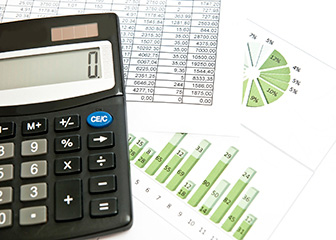Summary

| Quick Facts: Bookkeeping, Accounting, and Auditing Clerks | |
|---|---|
|
$34,030 per year
$16.36 per hour |
|
| High school diploma or equivalent | |
| None | |
| Moderate-term on-the-job training | |
| 1,898,300 | |
| 14% (About as fast as average) | |
| 259,000 | |
What Bookkeeping, Accounting, and Auditing Clerks Do
Bookkeeping, accounting, and auditing clerks produce financial records for organizations. They record financial transactions, update statements, and check financial records for accuracy.
Work Environment
Bookkeeping, accounting, and auditing clerks are employed in many industries, including firms that provide accounting, tax preparation, bookkeeping, and payroll services; federal, state, and local governments; and schools. About 1 of 4 bookkeeping, accounting, and auditing clerks worked part time in 2010.
How to Become a Bookkeeping, Accounting, or Auditing Clerk
Most bookkeeping, accounting, and auditing clerks need a high school diploma, and they usually learn some of their skills on the job. They must have basic math and computer skills, including knowledge of spreadsheets and bookkeeping software.
Pay
The median annual wage of bookkeeping, accounting, and auditing clerks was $34,030 in May 2010.
Job Outlook
Employment of bookkeeping, accounting, and auditing clerks is expected to grow 14 percent from 2010 to 2020, as fast as the average of all occupations. As the number of organizations increases and financial regulations become stricter, there will be greater demand for these workers to maintain books and provide accounting services.
Similar Occupations
Compare the job duties, education, job growth, and pay of bookkeeping, accounting, and auditing clerks with similar occupations.
O*NET
O*NET provides comprehensive information on key characteristics of workers and occupations.
Contacts for More Information
Learn more about bookkeeping, accounting, and auditing clerks by contacting these additional resources.









